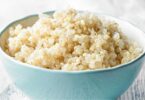In a world where a ”cheeseburger with fries” is often hailed as the pinnacle of culinary achievement, it’s no wonder that high cholesterol is becoming an all too common ailment. This sneaky little troublemaker can silently wreak havoc on our bodies, clogging up our arteries and leaving us vulnerable to heart disease. But fear not, dear reader, for there is hope! Welcome to the tantalizing universe of essential diets tailored specifically to tackle high cholesterol head-on.
In this article, we will embark on a flavorful journey through the depths of nutrition, unlocking the secrets of cholesterol-lowering superfoods, and uncovering the delectable dishes that can help us regain control of our health. So grab your aprons and get ready to dive into a world where food becomes not only sustenance but a powerful ally in the battle for a heart-healthy life. Are you ready to savor the taste of victory over high cholesterol? Let’s begin!
Understanding the Impact of High Cholesterol on Health
High cholesterol levels can be dangerous for health and can lead to a variety of health complications. Fortunately, making diet choices can help reduce cholesterol levels and combat these health issues. Here are some essential diets to consider when tackling high cholesterol levels:
- Eliminate trans fats – These are the fats found in many fast foods, fried foods, and processed foods that can increase cholesterol levels. Be sure to read ingredient labels carefully to avoid these.
- Choose healthy fats – Foods such as olive and canola oils, avocados, and nuts are high in monounsaturated fats, which can help lower cholesterol levels.
- Eat fiber-rich foods – Foods such as oatmeal, barley, legumes, apples, and pears are all high in fiber, which can help to lower cholesterol levels.
- HDL-raising foods – Foods such as fatty fish, walnuts, and chili peppers are high in antioxidants and can help to raise your HDL, or “good” cholesterol.
- Sugar and salt substitutes – Artificial sweeteners, low sodium foods, and low-fat cheeses can help reduce your consumption of sodium and sugar, both of which have been linked to increased cholesterol levels.
Making these diet choices can be beneficial in reducing high cholesterol levels. However, for more serious cases, you should consider talking to your doctor about cholesterol medications and lifestyle changes. With the right steps, it is possible to reduce your cholesterol levels and protect your health.
Unveiling the Link Between Diet and Cholesterol Levels
High cholesterol levels can have grave repercussions on your overall health. Poor diet choices can be the root cause of the condition that puts individuals at a greater risk of heart diseases, strokes, and other related illnesses. That’s why it is critical to understand the importance of having a healthy and balanced diet for sustaining acceptable cholesterol levels.
Here are some essential diets that you should include in your menu to tackle cholesterol and lead a healthier lifestyle:
- Whole grains and fiber-rich foods: Load up on whole grains such as oats, oatmeal, barley, and quinoa. Increase the consumption of fiber-rich foods such as legumes, seeds, vegetables, and fruits to reduce the digestion of cholesterol in your body.
- Avoid trans fats: Say no to fast foods as well as other deep-fried delicacies as they are packed with trans fats that increase the cholesterol levels in your body.
- Choose lean protein: Incorporate more fish, skinless poultry, and other lean meats to ensure a healthy diet and maintain cholesterol levels.
- Reduce intake of cholesterol: Limit consumption of certain cholesterol-rich foods such as processed meat, egg yolk, red meat, regular cheese, and shrimp.
- Monounsaturated fats: Substitute saturated fats such as butter, cream, and lard with healthier options like nuts, natural nut butter, canola olive oil, and avocados.
Regular exercise with the right diet can definitely help in reducing your cholesterol levels. Make sure you know your daily intakes of cholesterol and different types of fats and stick to eating healthy to stay fit, strong, and active.
Examining the Role of Saturated Fats in Cholesterol Accumulation
Saturated Fats
It is important to examine the role that saturated fats play in cholesterol accumulation, as they can be part of unhealthy diets. Too much saturated fats can contribute to a wide range of health conditions, including high cholesterol.
- Consider avoiding or reducing saturated fats in an individual’s diet, such as animals fats, coconut oil, and dairy products.
- Include low-fat dairy products or non-dairy substitutes.
- Try to reduce total fat intake, while increasing the consumption of fiber-rich fruits, vegetables, and whole grains.
Incorporating healthy foods into one’s diet can support in lowering the risk for developing elevated levels of cholesterol. In addition, it is important to focus on lifestyle modifications that may assist with a healthy diet. Exercise can be helpful as it can increase high-density lipoprotein levels. It can also help move amount of circulating lipids, or fats, out of the bloodstream.
The Power of Plant Sterols in Lowering Cholesterol Naturally
- Heart disease is one of the leading causes of death in the United States. High cholesterol levels can contribute to this and make matters worse. Fortunately, there are natural alternatives to consider.
- Plant sterols are among them and can help reduce levels of low-density lipoprotein (LDL) cholesterol, the type of cholesterol that can cause heart disease. They are naturally present in vegetable oils, nuts, seeds, legumes, and grains.
- When taken as a dietary supplement, these sterols can be even more beneficial in lowering LDL cholesterol levels. Studies have found that taking 2–3 grams of plant sterols daily significantly reduces LDL cholesterol in the short and long term.
- The plant sterol supplement has also been found to have no adverse effects on overall cholesterol and triglyceride levels. This is why they are considered a safe and natural option for combating high cholesterol.
- At its core, a healthy diet plays an important role in maintaining low cholesterol levels. Eating whole grains, fruits and vegetables, and healthy fats are essential. Avoid processed foods and sugar, which can raise cholesterol levels.
Additionally, adding lifestyle changes such as exercising regularly, not smoking, and maintaining a healthy weight can also help to reduce cholesterol naturally. Furthermore, eating more soluble fibers found in oats, apples, and various nuts can also help lower LDL cholesterol levels significantly.
When taking natural dietary supplements for cholesterol management, a person should consult a healthcare professional beforehand. They can advise on the safest and most effective supplement, dosage, and duration. Consulting a doctor is also important to rule out any underlying medical cause for one’s high cholesterol levels.
Exploring Omega-3 Fatty Acids as a Key Player in Reducing Cholesterol
While reducing cholesterol can be a tricky task, and sometimes medications are necessary, there are dietary changes that can also make a huge difference. A diet that is rich in Omega-3 fatty acids has been found to be beneficial for those looking for ways to reduce cholesterol. Here are some essential diets that can help you tackle high cholesterol.
- Try adding fish such as salmon, mackerel, herring, anchovies, or sardines to your meals. These are rich sources of Omega-3 fatty acids.
- Incorporate walnuts, flaxseed, and chia seeds into your diet. These have are excellent sources of Omega-3 fatty acids.
- Increase your intake of ocean vegetables. Seaweed and algae are two of the best sources of Omega-3 fatty acids.
In addition to adding these foods to your diet, you can also try supplementing with Omega-3 fatty acid capsules. Ask your doctor which type of supplements would be best for your particular health needs.
By making a few simple dietary changes, you can make a big difference when it comes to reducing cholesterol and improving your overall health. Remember, be sure to talk to a medical professional to assess your best options.
Introducing the Mediterranean Diet: A Heart-Healthy Approach to Lower Cholesterol
Most of us have heard of the Mediterranean diet, but how does this diet help tackle high cholesterol? This heart-healthy diet is focused on a variety of plant-based foods, such as fruits, vegetables, whole grains, legumes, nuts, and seeds. By consuming healthy fats, like olive oil and fatty fish, and limiting processed foods, the Mediterranean diet can effectively reduce cholesterol levels. Here are the essential components:
- Fruits and Vegetables: These are high in fiber and antioxidants, helping to offset the cholesterol levels in the body.
- Whole Grains: Complex carbohydrates sourced from cereal grains, quinoa, and other plant-based foods are important for cholesterol lowering.
- Fish: Fatty fish, such as salmon and mackerel, contain omega-3 fatty acids, which help reduce cholesterol levels.
- Nuts and Seeds: Including almonds, walnuts, chia, flax, and other healthy fats make this diet balanced.
- Healthy Fats: In addition to fish, monounsaturated fats, such as olive oil, are beneficial for the heart.
By swapping unhealthy ingredients, such as red and processed meats, for a variety of plant-based foods, the Mediterranean diet is an effective way to lower cholesterol. Incorporating more vegetables and fruits, whole grains, fish, nuts and seeds, and limiting processed and red meat will have a positive effect on cholesterol levels. By following this diet, you can lead a healthier life and reduce your risk of high cholesterol levels and heart disease.
Unpacking the Benefits of a High-Fiber Diet in Cholesterol Management
When it comes to managing cholesterol levels, there are many diets that can be followed, and one of the most popular is a high-fiber diet. This type of diet is rich in soluble fiber, which is known to be beneficial in cholesterol management. Here, we will explore the many benefits of a high-fiber diet in cholesterol management:
- Reduces Cholesterol Re-Absorption: Soluble fiber helps to slow down the absorption of cholesterol from food, meaning less of it will be re-absorbed into the blood system.
- Increases HDL Levels: Consuming soluble fiber can increase levels of HDL cholesterol, the “good” cholesterol, which helps to move fat and cholesterol into the liver for processing.
- Lowers LDL Levels: It also has been found to lower levels of LDL cholesterol, the “bad” cholesterol, which can lead to plaque buildup in the arteries.
- Aids Digestion: A high-fiber diet helps to keep the digestive system running smoothly and prevents constipation, bloating and gas.
- Encourages Healthy Eating Habits: Choosing to eat more high-fiber foods such as fruits, vegetables, legumes and whole grains helps to replace foods that are higher in saturated fats and cholesterol.
A high-fiber diet is easy to follow and can provide numerous benefits for maintaining healthy cholesterol levels. Fiber-rich foods not only help to reduce cholesterol but also promote regular digestion and encourage healthier eating habits. Incorporating a variety of these foods in your daily diet can help you achieve your cholesterol-management goals.
The Science Behind Consuming Soy Foods for Lowering Cholesterol
Soy foods have been consistently recognized for their many health benefits, particularly in helping to manage cholesterol levels in the body. Providing an essential source of plant-based protein and fiber, soy can offer an excellent alternative to high-fat, unhealthy sources of dietary cholesterol.
- The Cholesterol busting properties of Soy – The protein found in soy foods work to reduce the absorption of cholesterol in the intestine. Additionally, they contain phytosterols which block the absorption of dietary cholesterol in the intestine. Thus, by incorporating soy-based foods into your diet, one can drastically reduce cholesterol levels.
- Ease of Consumption – The wide range of soy-based foods available on the market make it extremely easy to integrate into everyday meals. Soy foods can be consumed as part of a balanced diet and can be added to most dishes in a variety of ways. From fermented Soybean-based condiments, to meat-free burgers and sausages, there are many exciting ingredients to choose from.
- Ideal for Vegans and Vegetarians – Protein-rich and low in saturated fats, soy is the ideal protein-rich food for vegans and vegetarians. Soy milk and tofu are considered two staples for any vegetarian diet, packing a great source of essential vitamins and minerals essential for overall health.
- Tasty Variety of Soy foods – From edamame to tempeh, there is a wonderful variety of soy-based foods that can cater to a range of tastes. Not only providing a cholesterol-lowering benefit, incorporating soy into meals can keep your food tasty and interesting.
Clearly, the health benefits of soy are undeniably impressive. If you aim to lower your cholesterol level, then incorporating soy into your diet is an essential step to take. Soy is a highly versatile ingredient that can easily be retrieved from any supermarket. Furthermore, it’s accessible in a variety of forms, allowing you to add it to any meal of your choice.
Harnessing the Potential of Nuts for Improving Cholesterol Profiles
Including nuts in your diet is a great way to improve your cholesterol profile. High-fiber nuts contain components that may help lower LDL (bad) cholesterol while raising HDL (good) cholesterol. They also provide natural sources of healthy fats such as monounsaturated fat and omega-3 fatty acids. Here’s how you can include them in your essential diet to tackle high cholesterol:
- Make sure to include a variety of nuts such as almonds, walnuts, pistachios, and hazelnuts as each have different benefits.
- Use nuts in place of snacks high in saturated fat to improve your health.
- Include them raw and roasted for healthy snacking or add them to salads and other meals for extra crunch.
- Swap nuts for butter on toast or use them in nut-based salad dressings.
Overall, include nuts in your essential diet to tackle high cholesterol can be an easy, tasty, and nutritious way to help you stay healthy. With the right knowledge and expertise, you can quickly and easily lower your bad cholesterol levels.
The DASH Diet: A Comprehensive Approach to Combat High Cholesterol
The DASH Diet, created in 1997 by the National Institutes of Health (NIH), is recognized as one of the most effective plans in the battle against high cholesterol levels. Developed by a team of nutritionists, the DASH Diet provides a range of food choices that help to reduce cholesterol levels and provide other health benefits too. Here are some of the features of the DASH Diet that makes it so effective in lowering cholesterol:
- It focuses on the reduction of sodium in the diet, which is one of the key regulators of cholesterol levels.
- It stresses the importance of getting adequate amounts of essential nutrients, such as dietary fiber, beneficial fats, and protein—all of which help to lower cholesterol levels.
- It encourages individuals to make healthier food choices and adjust their portion sizes.
- It is a balanced diet that contains foods from all the food groups, such as fruits, vegetables, whole grains, low fat dairy products, lean meats, nuts, and seeds.
According to recent evidence, the DASH Diet is as effective at lowering cholesterol as more restrictive low-fat and no-cholesterol diets. Taking into account all the health benefits this diet offers, the DASH Diet emerges as a very sensible and comprehensive approach to achieving lowered cholesterol levels.
Making Smart Choices About Cooking Oils to Control Cholesterol Levels
Cholesterol levels can be tricky to control, but certain diet changes can go a long way in helping to keep them in check. Smart cooking oil choices are just one part of a larger dietary approach. Here’s what you need to know about the different types of dietary strategies that can help tackle high cholesterol.
- A Mediterranean Diet: A Mediterranean diet places emphasis on plant-based foods, like fruits and vegetables, legumes, nuts, whole grains, and healthy fats. This type of diet features a strong focus on fish, along with some dairy and poultry. The Mediterranean diet not only benefits cholesterol levels, but studies have also linked it to lower rates of obesity, diabetes, and stroke.
- The Flexitarian Diet: The flexitarian diet focuses on natural, plant-based foods with the occasional addition of animal-based foods. Foods like soy and legumes, mushrooms, and nuts are strongly recommended for protein sources, while red meats are kept to a minimum. Foods with high cholesterol, like butter and cream, should also be limited. With the flexitarian diet, it’s all about eating more nutritious foods, more often.
- The DASH Diet: The Dietary Approaches to Stop Hypertension (DASH) diet is well-known for helping to lower blood pressure, but it can also help combat high cholesterol. It focuses on reducing sodium consumption and encourages the consumption of nutrient-dense foods, such as high-fiber vegetables, whole grains, and low-fat dairy. A wide variety of fresh fruits and vegetables as well as lean meats and poultry are also encouraged.
- The Low-Carb Diet: A low-carb diet plan emphasizes limiting the amount of carbohydrates consumed while still allowing for the consumption of protein- and fat-rich foods. This type of diet includes lean meats, fish, eggs, and low-fat dairy, as well as vegetables and fruits. Many studies have linked the low-carb diet with improved cholesterol levels.
These dietary strategies can be adapted to different lifestyles. Consider consulting with a nutritionist or health care professional to get tailored recommendations to lower your cholesterol levels. With the right combination of making smart oil choices paired with a healthier diet plan, you can take steps to better manage your cholesterol levels and stay healthy.
Understanding the Role of Exercise in Reducing High Cholesterol
It is essential to understand how different diets can help reduce and manage high cholesterol levels. There are a few diets that are particularly effective in promoting heart health and managing cholesterol. Here are some great suggestions:
- The Mediterranean Diet: This diet focuses on fresh fish, legumes, whole grains, vegetables, and fruit. Olive oil is the primary source of fat. This diet helps in reducing cholesterol and blood pressure levels, and reduces the risk for coronary artery disease.
- The DASH Diet (Dietary Approaches to Stop Hypertension): This is a high fiber, low fat diet that also involves reduced servings of red meat and processed foods. This diet brings a balance between sodium, potassium, and fiber, which are essential components for maintaining optimal cholesterol levels.
- The Low-Saturated-Fat Diet: This diet reduces your daily intake of saturated fat to less than 7 percent of your total caloric intake to help reduce bad cholesterol levels. Sources of saturated fat include processed and fried foods, butter, and full-fat dairy products.
- The Portfolio Diet: This diet has a unique combination of plant sterols, nuts, and soluble fibers which help reduce cholesterol levels. This diet helps to lower levels of both bad cholesterol and total cholesterol.
Exercising regularly is also essential in maintaining healthy cholesterol levels. Regular physical activity can help to reduce LDL (bad cholesterol) levels, while increasing HDL (good cholesterol) levels. It also helps to lower blood pressure and glucose levels in the body, leading to overall improved heart health. Aerobic exercises are particularly beneficial in reducing cholesterol levels. So, make sure to get in at least 30 minutes of aerobic exercise every day, combined with the above diets for optimal heart health.
Putting It into Practice: Creating an Effective Diet Plan for Lowering Cholesterol
High cholesterol is a serious health issue that can lead to cardiovascular diseases. To lower cholesterol levels, a strict, well-balanced diet tailored to your needs and lifestyle is a must. Federal dietary recommendations and established medical advice should serve as a basis when creating an effective diet plan that works for you.
An important component of a successful cholesterol-reduction diet is limiting intake of saturated and trans fats, both of which are known to raise cholesterol levels. Specific diets to consider providing ample options for healthy eating without compromising on flavor include:
- Mediterranean diets that emphasize consumption of whole grains, fruits and vegetables, monounsaturated fats and lean proteins
- Low-fat diets which limit intake of meats and dairy goods, substituting instead for low-fat options when appropriate
- Vegan diets which don’t include animal products whatsoever
- Pescatarian diets which focus on only including fish and seafood and avoiding animal products otherwise
A registered dietician can help develop a comprehensive nutrition plan focused on providing your body with adequate nutrition to improve overall health. When designing your nutrition plan, tailored calorie-reduction diets or low-carb diets can be employed to help you achieve a higher level of cardiovascular fitness and help to lower your cholesterol levels even more. With the right diet choices and lifestyle adjustments, you can be on your way to improved cholesterol management.
Combining Nutrition and Medication: Optimizing Cholesterol Management
If you want to better manage your cholesterol levels, combining nutrition with medication can be an effective approach. There are a few general dietary principles you can follow to make sure your cholesterol stays in check, like reducing saturated fats and fried foods, limiting alcohol consumption, and eating more fiber. But if you really want to optimize your cholesterol levels, more specific diets may be necessary.
Low-fat Diets
Low-fat diets are the most common general dietary strategy used to manage cholesterol. Studies have revealed that reducing total fat consumption and saturated fat can significantly lower total cholesterol and “bad” LDL cholesterol. To reap the benefits of a low-fat diet, you should limit your fat intake to 25% or less of your total caloric intake per day.
Mediterranean Diet
The Mediterranean diet has become increasingly popular in recent years due to its many health benefits. This diet emphasizes the consumption of fruits, vegetables, whole grains, legumes, and fish. Studies have also shown that the Mediterranean diet can be effective for managing cholesterol levels, due to the high intake of monounsaturated fats found in healthy oils like olive, nut, and canola oils.
Plant-based Diet
Plant-based diets are composed of mostly whole plant foods, such as fruits, vegetables, legumes, nuts, and seeds. These diets reduce your consumption of animal-based foods and highly processed foods. Research suggests that replacing animal-based foods with plant-based foods can help reduce cholesterol levels, thanks to their high fiber and complex carbohydrate content.
Other Factors
In addition to diet modification, there are other lifestyle changes you can make to help better manage your cholesterol levels. Cessation of smoking, increasing physical activity, and taking medication when necessary are all key components of cholesterol management.
If you want to lower your cholesterol levels, a combination of diet and lifestyle changes may be the best approach. By exploring essential diets and making healthy lifestyle choices, you can optimize your cholesterol management and protect your heart.
Q&A
Q: Are all fats bad for our cholesterol levels?
A: Not all fats are created equal! While it’s true that some fats can negatively impact our cholesterol levels, not all fats are bad for us. In fact, certain healthy fats can actually help improve our cholesterol profile, such as the ones found in avocados, nuts, and olive oil. It’s essential to understand the difference between good fats and bad fats to effectively tackle high cholesterol.
Q: Can adopting a specific diet lower high cholesterol levels?
A: Absolutely! A well-balanced and thoughtful diet can make a world of difference when it comes to managing high cholesterol levels. Several diets, such as the Mediterranean diet and the DASH (Dietary Approaches to Stop Hypertension) diet, have been proven effective in reducing cholesterol levels. By focusing on whole foods like fruits, vegetables, lean proteins, and whole grains, these diets can help lower cholesterol and promote overall heart health.
Q: What role does fiber play in lowering cholesterol?
A: Fiber is like a superhero when it comes to your cholesterol levels! Soluble fiber, found in foods like oats, beans, fruits, and vegetables, can effectively lower LDL (bad) cholesterol. It does this by binding to cholesterol in the digestive system, preventing its absorption into the bloodstream. By adding more fiber-rich foods to your diet, you can give your cholesterol levels a much-needed super boost!
Q: Can certain spices and herbs have a positive impact on cholesterol levels?
A: Yes, they can! Spices and herbs are not only great for adding flavor to your meals but can also provide some cholesterol-lowering benefits. For example, turmeric has been shown to reduce LDL cholesterol and triglyceride levels. Additionally, garlic has long been hailed for its cholesterol-lowering effects. Including these flavorful additions in your diet can be a tasty way to further support your cholesterol management efforts.
Q: Is it necessary to cut out all animal products from a cholesterol-lowering diet?
A: While a plant-based diet can be very beneficial for managing high cholesterol, it’s not necessary to completely eliminate all animal products. Modifying the consumption of animal-based foods—such as choosing lean meats, reducing intake of saturated fats found in fatty cuts of meat and full-fat dairy—can still provide essential nutrients while minimizing the negative impact on cholesterol levels. Balancing your diet with a variety of plant and animal-based foods can ensure you receive the nutrients you need while focusing on cholesterol management.
Q: Is it possible to enjoy the occasional treat while on a cholesterol-lowering diet?
A: Absolutely! A cholesterol-lowering diet doesn’t mean complete deprivation. The key is to practice moderation and make mindful choices. Enjoying an occasional treat is perfectly fine, as long as it doesn’t become a regular indulgence. Opting for healthier alternatives or finding creative ways to prepare your favorite treats can help you strike a balance between managing your cholesterol and satisfying your taste buds.
Q: Can physical activity help in reducing cholesterol levels?
A: Yes, it can! Engaging in regular physical activity plays a crucial role in managing cholesterol levels. Exercise has been shown to increase HDL (good) cholesterol while decreasing LDL (bad) cholesterol. Incorporating activities like brisk walking, swimming, cycling, or any form of exercise that gets your heart pumping can significantly support your ongoing efforts to tackle high cholesterol.
Q: Should I consult a healthcare professional before starting a cholesterol-lowering diet?
A: It’s always a good idea to consult with a healthcare professional before making significant dietary changes, especially if you have high cholesterol or are on any medication. They can assess your specific situation, provide personalized advice, and ensure that any dietary modifications align with your overall health goals. Seeking professional guidance can empower you to make informed decisions regarding your cholesterol management and enhance the effectiveness of your efforts. By understanding and exploring different essential diets, you can make positive changes in your diet that will improve your cholesterol levels and create lasting health benefits. You now know the best foods to eat, the right meal plans and the lifestyle changes you should make for lower cholesterol, allowing you to live a healthier, happier life.








